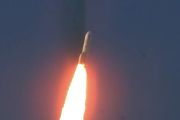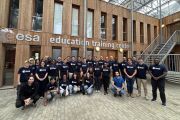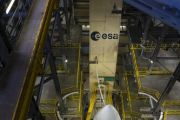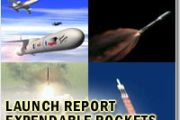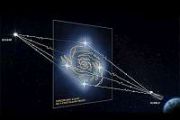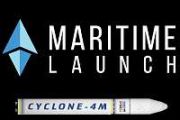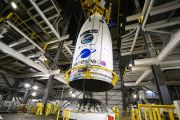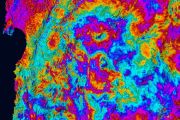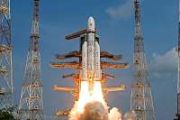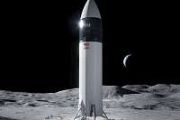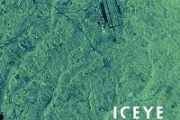
Copernical Team
Blobs in space: Slime mold to blast off for ISS experiment
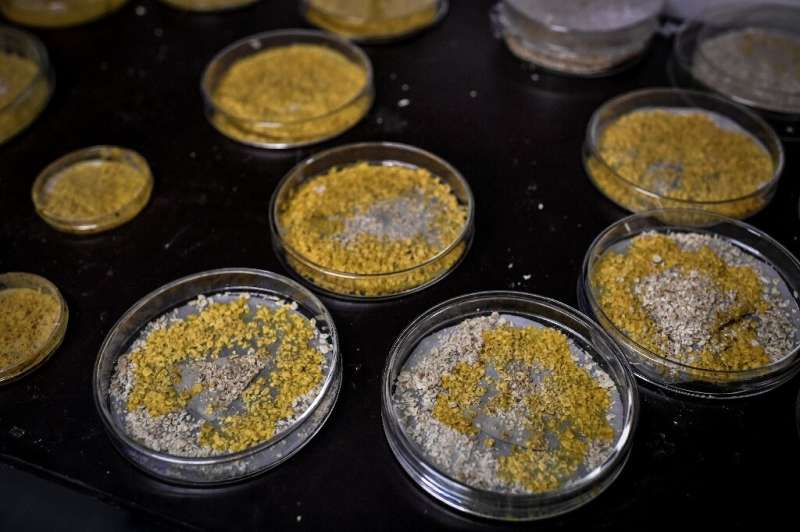
Astronauts aboard the International Space Station are set to welcome a most unusual guest, as "the Blob" blasts off into orbit on Tuesday.
An alien on its own planet, the Blob is an unclassifiable organism—neither fish nor fowl. Nor is it plant, animal or fungus.
As such, Physarum polycephalum—a type of slime mold—has long fascinated scientists and will now be part of a unique experiment carried out simultaneously by astronauts hundreds of kilometers above the Earth and by hundreds of thousands of French school students.
The slime mold first appeared on Earth around 500 million years ago, and defies conventional biology because it is made up of one cell with multiple nuclei.
While most organisms grow and reproduce through the division and multiplication of cells, Physarum polycephalum does not.
Space Olympics (full video)
 Video:
00:09:41
Video:
00:09:41
The International Space Station Expedition 65 crew recorded themselves on a day off after a long week of work having some weightless fun. From Earth orbit, 400 km above our planet, the crew present the very first Space Olympics.
ESA astronaut Thomas Pesquet shared this video on social media with the caption:
“The first ever Space Olympics ! A Saturday afternoon on the International Space Station. Four disciplines. Rules that evolved as we played. Seven athletes. Four nations. Two teams. Crew cohesion and morale boosted like never before. The first Space Olympics saw Team Crew Dragon and Team Soyuz
BepiColombo skims past Venus
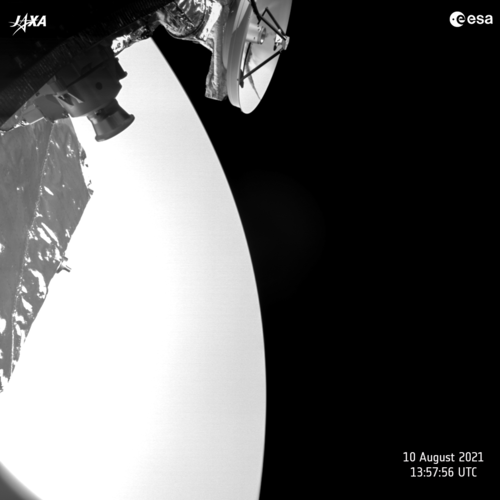 Image:
BepiColombo skims past Venus
Image:
BepiColombo skims past Venus Light pollution and spotting Perseid meteors
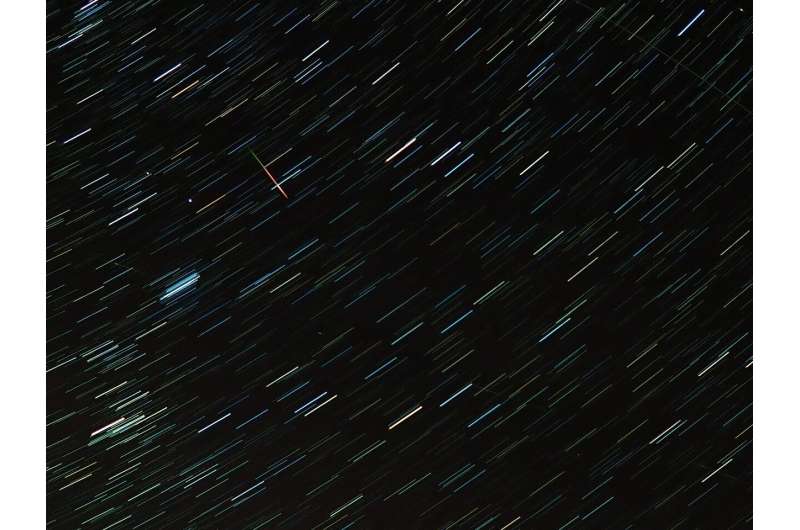
Many Perseid-related news stories and social media posts state that the maximum rate is about 100 meteors per hour, which is a lot. So, folks get excited and go out on the peak night, braving mosquitos and other nightly hazards. But they are often disappointed; we routinely hear, "I went out and only saw a few meteors. Not even 20, much less 100!" And they would be right. The problem is that the 100 per hour is a theoretical number used by meteor scientists and does not convey what people are actually going to see.
In the 1980s, meteor researchers were searching for a way to compare the meteor shower rates observed by various individuals and groups across the globe. People were reporting the rates, but the differences in sky conditions, radiant altitude and observer eyesight made getting a comprehensive view of shower activity difficult.
So, the meteor researchers put their heads together and came up with the concept of a ZHR, or Zenithal Hourly Rate. The ZHR is what you get after you correct the observed rates for the sky conditions, the altitude of the radiant above the horizon and observer biases.
Gravity assists: nature balances her books

On Earth, fuel is a limited, precious resource. In space, we trade energy freely with the planets.
Forecast perfect for 'mythic' Perseid meteor spectacle
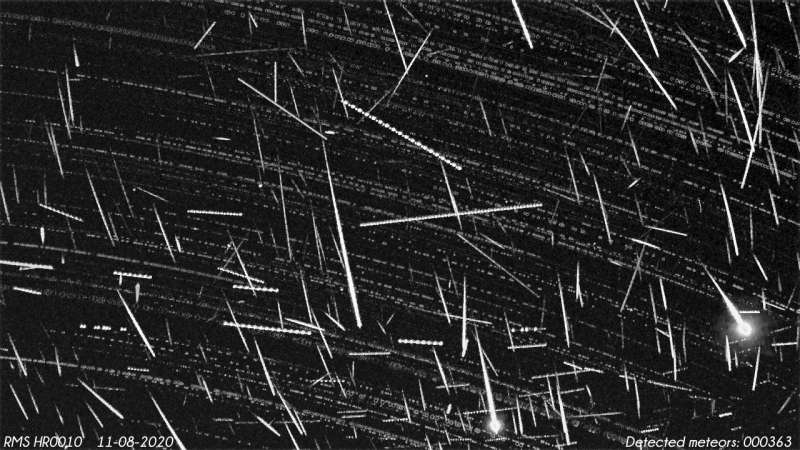
The Perseid meteor shower peaks Aug. 12 to 13 and the stars are aligning for a really big show, according to Western's Denis Vida.
Sunday, Aug. 8, marks the arrival of a new moon, so the sky will be relatively dark and forecasts to be ideal for a viewing of the annual meteor shower on Wednesday or Thursday night.
A new moon is when the sun and moon are close together as seen from Earth, so both are not visible during the night.
"If you happen to find yourself outside of the city or perhaps on a beach on Wednesday or Thursday night, look up! Every couple of minutes or so you will see a bright meteor zipping across the sky," said Vida, a postdoctoral associate in Western's department of physics and astronomy.
All of the meteors are coming from the same direction—a specific point in the constellation of Perseus.
NASA's TESS tunes into an all-sky 'symphony' of red giant stars
 Using observations from NASA's Transiting Exoplanet Survey Satellite (TESS), astronomers have identified an unprecedented collection of pulsating red giant stars all across the sky. These stars, whose rhythms arise from internal sound waves, provide the opening chords of a symphonic exploration of our galactic neighborhood.
TESS primarily hunts for worlds beyond our solar system, also know
Using observations from NASA's Transiting Exoplanet Survey Satellite (TESS), astronomers have identified an unprecedented collection of pulsating red giant stars all across the sky. These stars, whose rhythms arise from internal sound waves, provide the opening chords of a symphonic exploration of our galactic neighborhood.
TESS primarily hunts for worlds beyond our solar system, also know Small force, big effect: How the planets could influence the sun
 A new theory supports the controversial hypothesis that the planets affect solar activity. It puts forward a mechanism by which the very small influence of the planets could exert its rhythm on such a large system as the Sun. If the theory is confirmed, it could possibly be used to predict solar activity more accurately. This would be of great interest, as large solar flares can cripple electron
A new theory supports the controversial hypothesis that the planets affect solar activity. It puts forward a mechanism by which the very small influence of the planets could exert its rhythm on such a large system as the Sun. If the theory is confirmed, it could possibly be used to predict solar activity more accurately. This would be of great interest, as large solar flares can cripple electron Huge rings around a black hole
 A spectacular set of rings around a black hole has been captured using NASA's Chandra X-ray Observatory and Neil Gehrels Swift Observatory. The X-ray images of the giant rings have revealed new information about dust located in our Galaxy, using a similar principle to the X-rays performed in doctor's offices and airports.
The black hole is part of a binary system called V404 Cygni, located
A spectacular set of rings around a black hole has been captured using NASA's Chandra X-ray Observatory and Neil Gehrels Swift Observatory. The X-ray images of the giant rings have revealed new information about dust located in our Galaxy, using a similar principle to the X-rays performed in doctor's offices and airports.
The black hole is part of a binary system called V404 Cygni, located Exotic matter is in our sights
 Physicists have created a new way to observe details about the structure and composition of materials that improves upon previous methods. Conventional spectroscopy changes the frequency of light shining on a sample over time to reveal details about them. The new technique, Rabi-oscillation spectroscopy, does not need to explore a wide frequency range so can operate much more quickly. This metho
Physicists have created a new way to observe details about the structure and composition of materials that improves upon previous methods. Conventional spectroscopy changes the frequency of light shining on a sample over time to reveal details about them. The new technique, Rabi-oscillation spectroscopy, does not need to explore a wide frequency range so can operate much more quickly. This metho 
